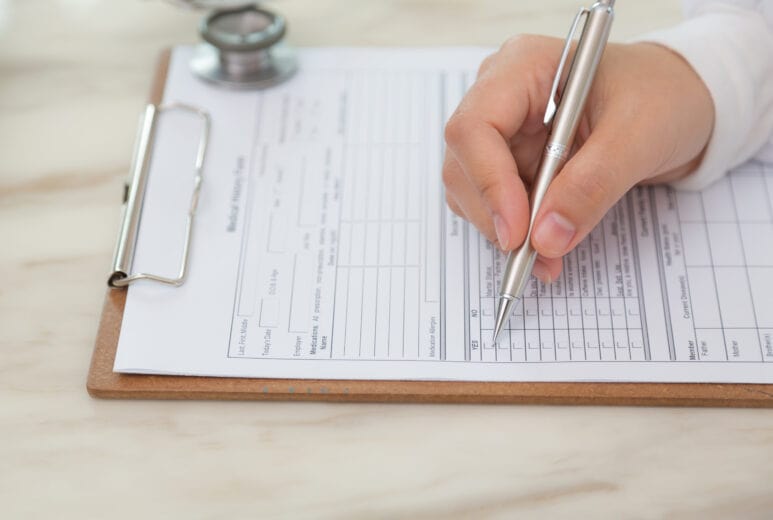Health Checkup: When and Where to Get a Complete Preventative Exam?
How to Benefit?
Unexpected events are a part of life. However, preventative care, in all aspects of life, personal or professional, is crucial for risk reduction. In healthcare, continuous advancements in medicine and innovative early diagnostic tools allow for the mitigation of temporary or permanent effects of various diseases. Laboratory tests, instrumental investigations, and specialized examinations; all constitute the health checkup or medical check-up service. This medical pathway is tailored to the individual's sex, age, and profile, recommended for disease prevention, early diagnosis, and monitoring. The service includes health checkups and preventative courses.
It is advisable to consult your general practitioner for further advice on the most appropriate examinations for your specific health needs.
Health checkups are designed for both women and men and are differentiated based on age. These examinations can take a few hours or several days.
Generally, the different types of health checkups are categorized as follows:
- Women under and over 45 years old;
- Men under and over 45 years old;
A health checkup begins with an internal medicine examination, where a physician specializing in internal medicine gathers information about the patient's medical history (anamnesis).
The planned clinical pathway includes specialized examinations, laboratory tests, and diagnostic imaging examinations (X-rays, ultrasounds, etc.).
At the doctor's request, other specialized examinations and diagnostic investigations may be performed, which can be scheduled and carried out on the same day (for first-level investigations) or on subsequent days (for second-level investigations).
Each patient's clinical data will be summarized in a medical report that will include the procedure for monitoring any identified pathologies and recommended preventative examinations.
EXPRESS QUOTE
Would you like more information?
Your health, our priority.
Request your free quote
Where does the examination take place?
Medical check-ups or complete health checks always take place in a clinic or hospital equipped with various diagnostic tools and a multidisciplinary team.
The patient can choose a diagnostic pathway based on their sex and age. During the checkup, they undergo biological and specialized examinations aimed at detecting common diseases, such as metabolic, cardiovascular, and oncological diseases. Additionally, the examinations can be supplemented by specific tests for known pathologies or particular symptoms.
It is also possible to personalize the pathway, scheduling the check-up after a medical examination, tailored to the patient's specific needs. The check-up lasts several hours and takes place in a dedicated hospital space designed for maximum comfort and privacy. The patient is under the care of an internist, who maintains constant contact with specialists for continuous updates on clinical results.
At the end of the health check-up, the doctor will meet with the patient to explain the results, suggest ways to reduce risk factors for illness, and how to maintain good health. Furthermore, leading medical check-up centers offer diagnostic pathways to investigate specific symptoms or known pathologies. These pathways are investigations characterized by the coordinated activities of an internist and a multidisciplinary team.

How does the examination proceed?
A complete checkup includes urine and blood tests, ultrasounds, an electrocardiogram, and other tests to detect any risk factors and potentially allow for lifestyle adjustments.
- Urinalysis. Begin your health check-up with a urine test: the report will provide an overview of your body's health. This analysis evaluates physical characteristics such as color, appearance, odor, and chemical components like proteins, blood, and glucose. Glucose concentration is an important value for diabetes screening;
- Blood test. The blood test helps your doctor verify that your values are within the normal range. Hematocrit, transaminases, and more... The blood test checks for anemia, a blood disorder with serious consequences if hemoglobin levels fall below normal thresholds. Cholesterol levels, a key indicator for cardiovascular disease risk, are also assessed. The blood test also counts red blood cells, white blood cells, and platelets, important parameters for evaluating overall health, from kidneys to liver and bone health;
- Preventing cardiovascular diseases. The health check-up may include a specialized cardiology examination with an electrocardiogram (ECG) to assess heart electrical activity and detect any potential cardiovascular disease;
- Mammography against cancer. For women, in addition to urine and blood tests, the health check-up includes a breast ultrasound and bilateral mammogram. Early detection of breast cancer, a leading cause of cancer death in women, allows for effective intervention. A gynecological examination, recommended at least annually, may also be included. During the check-up, you can discuss contraception, STIs, assisted fertilization, and menopause;